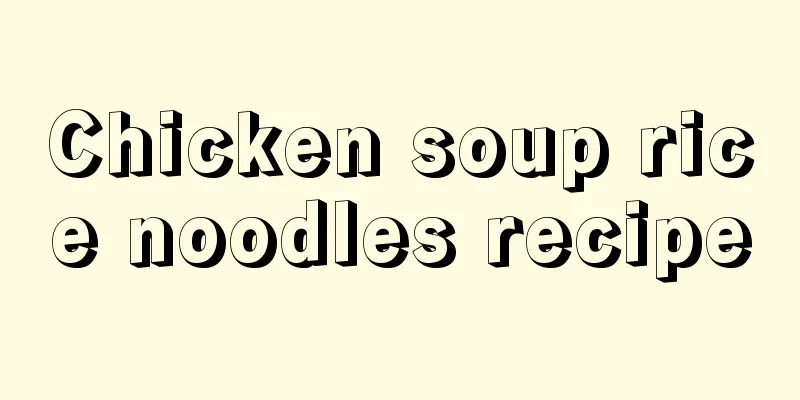Can I eat konjac during breastfeeding?

|
I don't know when konjac became a very popular food. Due to its nature, konjac is also called konjac or taro. It is a relatively common plant. Konjac has the effects of lowering blood lipids, losing weight, stimulating appetite, laxative and dispersing toxins. It is a very good healthy food. It can be eaten by mothers who are breastfeeding. Now there are many ways to eat konjac, and it can be made into many delicious foods. Can I eat konjac during breastfeeding? Can eat You can eat konjac during breastfeeding, but please note that raw konjac is poisonous and must be boiled for more than 3 hours before it can be eaten. Before cooking, boil it in water to remove excess alkali and fishy smell. The benefits of konjac Lowers cholesterol Konjac glucomannan can effectively inhibit the small intestine's absorption of fat-decomposing substances such as cholesterol and bile acid, promote fat excretion from the body, and reduce the total amount of triglycerides and cholesterol in serum. Improve immunity and prevent cancer Eating konjac regularly can also help us improve immunity and prevent cancer. Why is this? Konjac can enhance the body's immunity. The mannan it contains interferes with the metabolism of cancer cells. The high-quality dietary fiber it contains can stimulate the body to produce a substance that kills cancer cells. The drug sensitivity test showed that it was sensitive to cardia cancer and colon cancer cells. It can resolve phlegm, soften hard masses, disperse swelling and detoxify. It is mainly used to treat lumps, phlegm nodules, scrofula and other symptoms, and can prevent and treat cancer. Reducing the burden on the pancreas is beneficial for diabetic patients The fiber in konjac can promote gastrointestinal motility, moisturize the intestines and promote bowel movements, prevent constipation and reduce the intestinal absorption of fat, which is beneficial for the treatment of intestinal diseases. It can also reduce the accumulation of cholesterol in the body and is of great significance for the prevention and treatment of hypertension and coronary artery sclerosis. The niacin, vitamin C, E, etc. contained in konjac can reduce the accumulation of cholesterol in the body, prevent arteriosclerosis, and prevent and treat cardiovascular and cerebrovascular diseases. Satisfy hunger and lose weight Konjac is a low-calorie food. The glucomannan it contains will absorb water and swell, increasing to 30 to 100 times its original volume. Therefore, you will feel full after eating it. It can be used to treat diabetes and is also an ideal weight-loss food. Detoxification Detoxification: Its rich plant cellulose helps activate intestinal function, speed up the excretion of harmful toxins in the body, and prevent and reduce the incidence of intestinal system diseases. Clean stomach A large amount of soluble plant fiber promotes gastrointestinal motility, reduces the retention time of harmful substances in the gastrointestinal tract and gallbladder, effectively protects the gastric mucosa and cleans the stomach wall. Disease prevention It has been fully demonstrated by the medical community that natural mannan can inhibit cholesterol, lower blood lipids, lower blood sugar, dilate blood vessels, prevent arteriosclerosis and other cardiovascular and cerebrovascular diseases, and has the effect of prolonging life. Balanced Salt Konjac has the effect of regulating or balancing the salt content in the body. (Nutrition science has shown that the human body's daily salt intake should be maintained below 10g). Calcium supplementation 100 grams of natural konjac food contains about 43 mg of calcium. More importantly, the calcium it contains is easily soluble and absorbed by the human body. This calcium-rich product is also the first choice for calcium supplementation. Konjac contains chromium, which can delay the absorption of glucose and effectively lower postprandial blood sugar, thereby reducing the burden on the pancreas, putting the sugar metabolism of diabetic patients in a virtuous cycle and keeping blood sugar levels within a certain range. It will not cause a sudden drop in blood sugar and cause hypoglycemia like some hypoglycemic drugs. Relieve pain Konjac can also help us relieve pain. Let’s take a look at the principle. Konjac has the effect of keeping warm. In ancient folk remedies, konjac was made into warm cloth to treat stomach pain and shoulder pain. Wrap the steamed konjac in a towel and place it on the affected area to relieve pain. Activate blood circulation and remove blood stasis Konjac is pungent and warm in nature, and can promote blood circulation and prevent blood stasis. |
<<: Can I eat wolfberry during breastfeeding?
Recommend
How to make cheese and egg custard
Food requires nutritional balance. Not only will ...
How to make croquettes
When you drag your tired body back home, if someo...
How to make homemade pizza
Appetite is also a desire, and in order to satisf...
How to make homemade fried noodles
Food shows are very popular nowadays, and I belie...
Shrimp Bacon Pizza Recipe
According to reliable reports, many people have b...
How to make egg, milk and cornmeal pancakes
Some people often say that they can cook, but in ...
How to make parsley leaf omelette
Most diseases and cancers are closely related to ...
How to make lotus seed, jujube and white fungus soup
Nowadays, many people work and live alone outside...
How to make dry fried beef
Do your children like the food you cook? I believ...
How to make two-color steamed buns
If you are unmarried, are you wandering around al...
How to make kimchi udon
We call people who like to eat "foodies"...
How to make pumpkin red bean paste sesame cake
An unhealthy diet can often be a triggering facto...
How to make yam steamed buns
With the continuous improvement of life today, pe...
How to make homemade noodles
I live a monotonous life every day, starting from...
How to make mushroom wontons
Shiitake mushroom wontons are a food that is suit...









